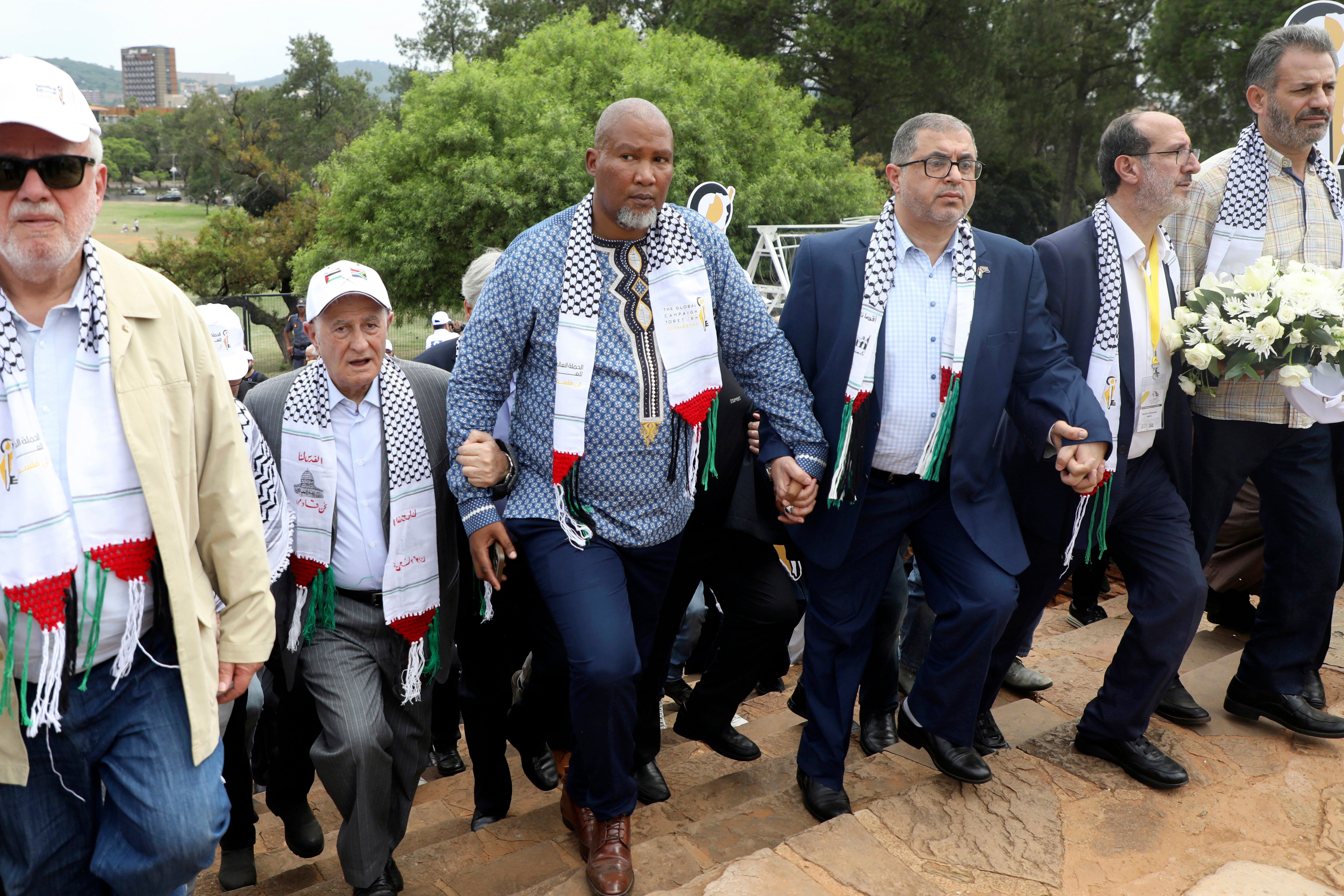The UK denies a visa to Mandela's grandson over his support for Hamas
The grandson of South Africa’s first Black president, Nelson Mandela, says the U.K. government denied him an entry visa because of his support for Hamas

The grandson of South Africa's first Black president, Nelson Mandela, said Friday the U.K. government denied him an entry visa because of his support for Hamas and his stance on the Israel-Hamas war.
Mandla Mandela could not travel to the U.K. earlier this month to address pro-Palestinian gatherings in Manchester, Edinburgh and Glasgow after he was informed that he would need a visa, despite holding a South African government passport that would ordinarily allow him visa-free entry.
This week, however, the U.K. Home Office sent Mandela a letter informing him that his visa application had been denied because of his “support for Hamas,” and because his presence in the UK was “not conducive to the public good”.
Mandela told the AP that he received the letter, dated Oct. 21, on Thursday.
“Your presence in the UK has been assessed as not conducive for the public good on the grounds that you have engaged in unacceptable behavior. You have made multiple statements which explicitly support Hamas and their terrorist violence, including glorifying the Oct. 7 attack on Israel and their recently deceased leader Ismail Haniyeh,” states the letter, seen by The Associated Press.
The letter points out several of Mandela's posts on Instagram in which he voices his support for Hamas and the Palestinians, including one showing him with Haniyeh, who was killed by an airstrike in July this year.
It also notes that Mandela attended Haniyeh's funeral in August, having met him twice in January and April this year, and posted a photo of himself with a senior Hamas leader, Khaled Meshaal.
“As such, your presence in the U.K. is considered to pose a threat to U.K. society as it would highly likely cause tensions amongst U.K. Jewish communities. It is in the interests of the community to refuse your visa to protect public safety and prevent disorder or crime in the U.K.,” the letter states.
The Home Office did not immediately respond to a request for comment.
Mandela said the visa refusal would not deter him from continuing to express his support for the Palestinians.
“We can never be silenced and we will never let the refusal of a visa prevent us for standing for justice, peace and equality. We will continue to raise our voice against the unjust occupation, genocide and ethnic cleansing of Gaza and all of Occupied Palestine sponsored by the U.K. and its ilk,” he said.
He said the visa refusal was an attempt to restrict his movement and freedom of expression, likening it to the challenges faced by his grandfather Nelson Mandela, who spent 27 years in prison for his role in the struggle against apartheid. The racist system implemented by the white minority government was abolished in 1994 and Nelson Mandela became South Africa's first democratically elected leader.
“My grandfather’s movement and freedom was likewise restricted but he refused the condition of release from prison that restricted him to the Transkei. He remained firm in his pursuit of justice and continued to be a symbol of freedom, justice and human rights for all,” he said.
Pro-Palestinian organizations, including the Desmond Tutu Foundation in South Africa and the U.K.-based Sheffield Palestine Coalition Against Israeli Apartheid, have criticized the U.K. for its decision.
Bookmark popover
Removed from bookmarks